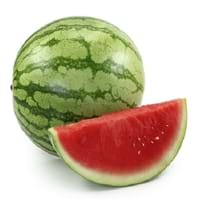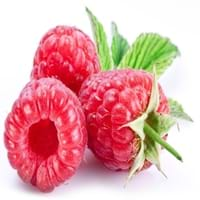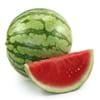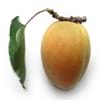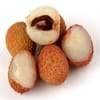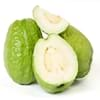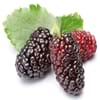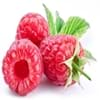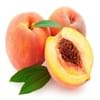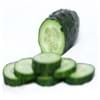Health Benefits
Anti-aging benefits, Anti-inflammatory properties, Asthma treatment, Body hydration, Cancer prevention, Digestive aid, Skin cleansing, Skin rejuvenation
Cancer prevention, Heart care, Prevents macular degeneration, Reduces blood circulation problems
General Benefits
Anti-inflammatory properties, Body hydration, Controls blood pressure, Digestive aid, Maintains healthy cholesterol level
Anti-inflammatory properties, Controls blood sugar levels, Digestive aid, Eye care, Helps in weight loss
Skin Benefits
Anti-aging benefits, Brightens and lightens complexion, Hydrates skin
Anti-aging benefits, Brightens and lightens complexion
Hair Benefits
Promotes longer and healthier hair, Regulates hair growth
Acts as moisturizer, Regulates hair growth, Shiny hair
Allergy Symptoms
Breathing difficulty, Decrease in blood pressure, Dizziness, Eczema, Hives, Runny nose, Swelling of mouth, tongue or lips, Watery eyes
Breathing difficulty, Eczema, Hives, Itching, Nasal congestion, Runny nose, Sneezing, Watery eyes, Wheezing
Side Effects
Allergic reaction, Bloating, Diarrhoea, Indigestion, Intestinal gas, Nausea, Vomiting
Allergic reaction
Best Time to Eat
As a snack in the late afternoon, Don't consume at night and before bed, Eat the fresh ones, avoid mixing with any other foods, don't eat after meal., Strictly avoid empty stomach
Best if taken as a breakfast (or empty stomach), As a snack in the late afternoon, Don't eat after meal, Morning time (before lunch)
Vitamin B5 (Pantothenic Acid)
Vitamin C (Ascorbic Acid)
Vitamin K (Phyllochinone)
Phytosterol
Not Available
Calories in Fresh Fruit with Peel
Not Available
Calories in Fresh Fruit without Peel
Not Available
Calories in Frozen Form
Not Available
Calories in Canned Form
Not Available
Varieties
Sugar Baby, Sangria, Golden Midget, Starlight, Jubilee, Starbrite, Extazy, Stars 'n' Stripes, Mickylee, Yellow Baby, Yellow Doll, Little Baby Flower, Sweet Favorite and Cream of Saskatchewan
Amity, August Red, Boyne, Canby, Caroline, Comet, Dinkum, Dorman Red, Latham, Meeker, Black Hawk, Hayda, Lauren, Meeker and Latham
Color
Canary yellow, Coral red, Orange, Salmon yellow, Scarlet red, White
Black, Purple, Red, Yellow
Origin
Southern Africa
Europe, North Asia
Soil Type
Sandy, Well-drained
Sandy loam
Climatic Conditions
Dry, Hot
Cold
Facts about
- Watermelon contain 91% of water.
- In Japan & Chine, watermelon is a popular gift to bring a host.
- Entire watermelon is edible, even the rinds & seeds.
- There are more than 1200 varieties grown in the world.
- There are more than 200 varieties of raspberries.
- In USA, 90% of the raspberries are grown in Washington, California and Oregon.
- They do not ripe after they are picked.
- A raspberry contain 100 to 120 seeds.
Top Producer
China
Russia
Other Countries
Algeria, Brazil, Egypt, Iran, Kazakhstan, Mexico, Spain, Turkey, United States of America
Azerbaijan, Canada, Mexico, Poland, Serbia, Spain, Ukraine, United Kingdom, United States of America
Top Importer
Germany
United States of America
Top Exporter
China
Poland
Botanical Name
Citrullus Lanatus
Rubus Idaeus
Synonym
Citrullus vulgaris
Not Available
Subkingdom
Tracheobionta
Tracheobionta
Division
Magnoliophyta
Magnoliophyta
Class
Magnoliopsida
Magnoliopsida
Subclass
Dillenhidae
Rosidae
Order
Cucurbitales
Rosales
Family
Cucurbitaceae
Rosaceae
Species
C. lanatus
R. idaeus
Compare Watermelon and Raspberry
It is important compare Watermelon and Raspberry as both the fruits have a different nutritional value. Their comparison can be done on the basis of their vitamin and mineral content, calories, benefits as well as characteristics, making it easier for us to choose the best fruit for our diet. Their general health benefits are as follows:
Watermelon Benefits: anti-inflammatory properties, body hydration, controls blood pressure, digestive aid and maintains healthy cholesterol level.
Raspberry Benefits: anti-inflammatory properties, controls blood sugar levels, digestive aid, eye care and helps in weight loss.
Fruits are also used as a remedy for various hair problems. The hair benefits of Watermelon are: promotes longer and healthier hair and regulates hair growth and hair benefits of Raspberry are: acts as moisturizer, regulates hair growth and shiny hair. Some fruits are known to cause allergic reactions. The allergy symptoms of first fruit are: breathing difficulty, decrease in blood pressure, dizziness, eczema, hives, runny nose, swelling of mouth tongue or lips and watery eyes and the symptoms of second fruit are: breathing difficulty, eczema, hives, itching, nasal congestion, runny nose, sneezing, watery eyes and wheezing. Get sorted Watermelon vs Raspberry comparison with the help of fruit comparison tool by fruitvs.com.
